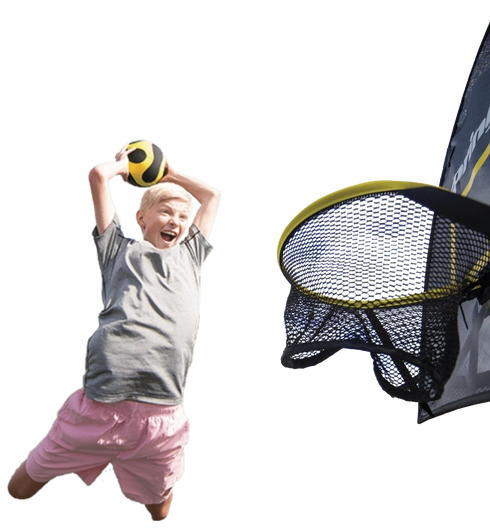Parenting in 2019
min read

Parenting in 2019
2019 is well under way with new challenges to face as families, and patience to be tested as parents! Perhaps your children are dealing with Mum and Dad separating or transitioning to another school and showing some behavioural issues. Maybe you are overwhelmed at work, stressed by sickness, or struggling to find quality time for family bonding. It’s not easy being a mother, father or step-parent in a progressive society, so we’ve compiled a shortlist of some tips to help keep you sane and kicking parenting goals throughout this New Year.

1. Discipline Doesn’t Have to Be a Dirty Word
The pendulum has swung from one extreme of parenting to another over the years and more recently seems to be suspending somewhere in the middle. Being too strict is considered old fashioned, but being a pushover is also becoming passé.
A more balance-focused approach is the trend for 2019. This democratic, middle-of-the-road style is now being referred to as authoritative parenting, where children are no longer seen and not heard nor running rampant. Offspring’s opinions are taken into consideration yet limits are firmly placed on their behaviour. As well, reasonable and unwavering discipline is applied when kids fail to meet expectations or disobey the rules. Because discipline is not a dirty word!

2. Self-Care is Not the Same as Being Selfish
When you are exhausted by broken sleep and feel stressed by being stretched too thin between your profession and home duties, it’s testing to find the energy to be an effective parent at all times. And in our fast-paced lives, self-care is so often overlooked when it should be granted higher significance.
Most mothers in particular are nurturers by nature and therefore self-sacrificing. When others’ needs and wants are constantly put ahead of a parent’s own, this can come at a cost to this person’s overall health and well-being. Self-care is defined as taking responsibility to ensure your own basic needs and heart’s desires are met. Vital needs include moving your body through various forms of exercise like running, yoga or even a jump on the trampoline. Nourishing yourself with wholesome foods and getting a good night’s sleep is also relative to self-care. Meeting your heart’s desires might mean indulging in an activity you enjoy or maintaining a favourite hobby. Even something as simple as taking some timeout to yourself to sip a cup of tea in your favourite chair without anyone disrupting your serenity could be an example of practicing the art of self-care.

3. A Response is Better than a Reaction
As parents who are only human, sometimes we allow our emotions to override our rationality so we may react harshly in the heat of the moment rather than keep our cool and respond calmly. The reality is that consistency is what really matters when delivering a consequence, not the magnitude of stinging nor annoyance to your child.
You can’t control your child’s reaction to your discipline; you can only control your own response to their behaviour. Even if your child does not appear to be bothered by your disapproval, a confident, measured, and predictable approach will still have appropriate impact and a better chance of achieving the result you want.
One technique being advocated by coaches on parenting, is to simply walk away from any sort of power struggle as opposed to being dragged into arguing. Stepping aside shows young people that belligerence is not tolerated and takes their power away. You also increase the chances of enabling a more productive conversation once both you and your child have taken some time to cool down and can reapproach the conflict between one another more peacefully, keep calm and carry on!

4. Letting Go of Lawnmower Parenting
Previously parents have been blamed for ‘helicopter parenting’ by hovering over their children and flying down to rescue them at the first sign of distress. Although attempting to be supportive, they’ve been held responsible for nurturing a generation of young adults who lack adaptability, are spoiled and feel entitled.
Now another controversial type of child-rearing, ‘Lawnmower parenting’ cuts down any impediment that threatens to traverse their children’s tracks, just like the landscaping machine these parents are named after. According to teachers who witness this style of child raising, the problem is that their students then don’t obtain the real-life education they need. Children of this type of upbringing don’t get to experience any sense of struggle, practice resolving conflict, nor learn to overcome failure in their early years. Unfortunately, these kids aren’t set up for success in adulthood if not fully equipped with a set of tools to help them thrive. The lesson is to leave your lawnmower in the garden shed and just let your grass grow!
5. Co-parenting is Cool
Did you know that January is known as Divorce Month at law firms around the world? According to marital experts, many couples choose to make the resolution to end their marriage in the New Year. As a result, the term co-parenting has been introduced and refers to the act of raising children together with your ex-partner post separation or divorce. Co-parenting is notoriously challenging to navigate in the direct aftermath of relationship breakdown.
These days co-parenting is common, and can be a positive experience if both parents place their children’s developmental wellbeing first and foremost, interact in a healthy manner and stay on the same page when it comes to discipline. Because accomplishment requires a considerable amount of tolerance, compassion, and cooperation… couples who can master this type of parenting are considered admirable!

